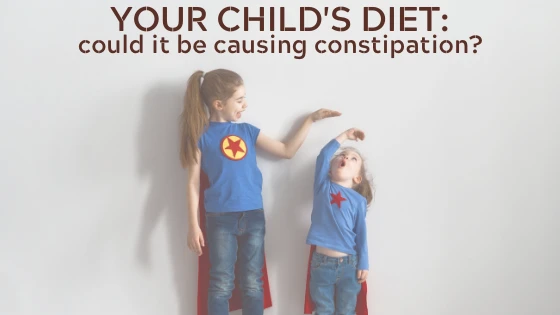Children are not immune to constipation, and a healthy diet is crucial for regularity. If a child is experiencing constipation, the first step is to switch up their diet.
Foods that are high in fat and low in fiber can contribute to constipation. A high-fat diet may produce the inability for food to be broken down properly while moving through the digestive system. Meanwhile, high-fiber diets can promote regularity by properly moving through the digestive system.
Water intake is essential for any healthy diet. Dehydration, or lack of water and fluids, can lead to constipation in children. Children should not consume caffeinated beverages, as it is harmful to their health in many ways – which includes causing constipation.
Another factor that could lead to constipation in children is a sudden change in diet, like switching from breastmilk to formula, or liquid foods to solid foods.
Controlling a child’s diet may seem a bit overwhelming at times, but our guide below may be able to help:
Hydration
- 2 – 4 ounces of water per day for babies 6-12 months old
- 2 glasses of water per day for 2-year olds
- 3 glasses of water per day for 3-year olds
- 4 glasses of water per day for 4-year olds
- 5 glasses (1 liter) of water per day for 5 – 8-year-olds
- 7 glasses (1.5 liters) of water per day for 9 – 12-year-olds
- 8 – 10 glasses (2 liters) of water per day for children 13 and older
Foods that Fight Constipation
- Whole grains like oatmeal, whole wheat bread or pasta, and bran flake cereals
- Fruits, including raspberries, oranges, pears, and apples
- Popcorn
- Baked, boiled, or steamed potatoes
- Vegetables such as carrots, broccoli, and collard greens
- Beans (baked beans, black-eyed peas, pinto beans, and kidney beans)
A healthy, well-balanced diet is vital for proper bodily functions. Children need a healthy diet in order to manage a proper, healthy lifestyle in the future. If your child is living with chronic constipation, clinical research may be able to help. Sign up to learn more.

